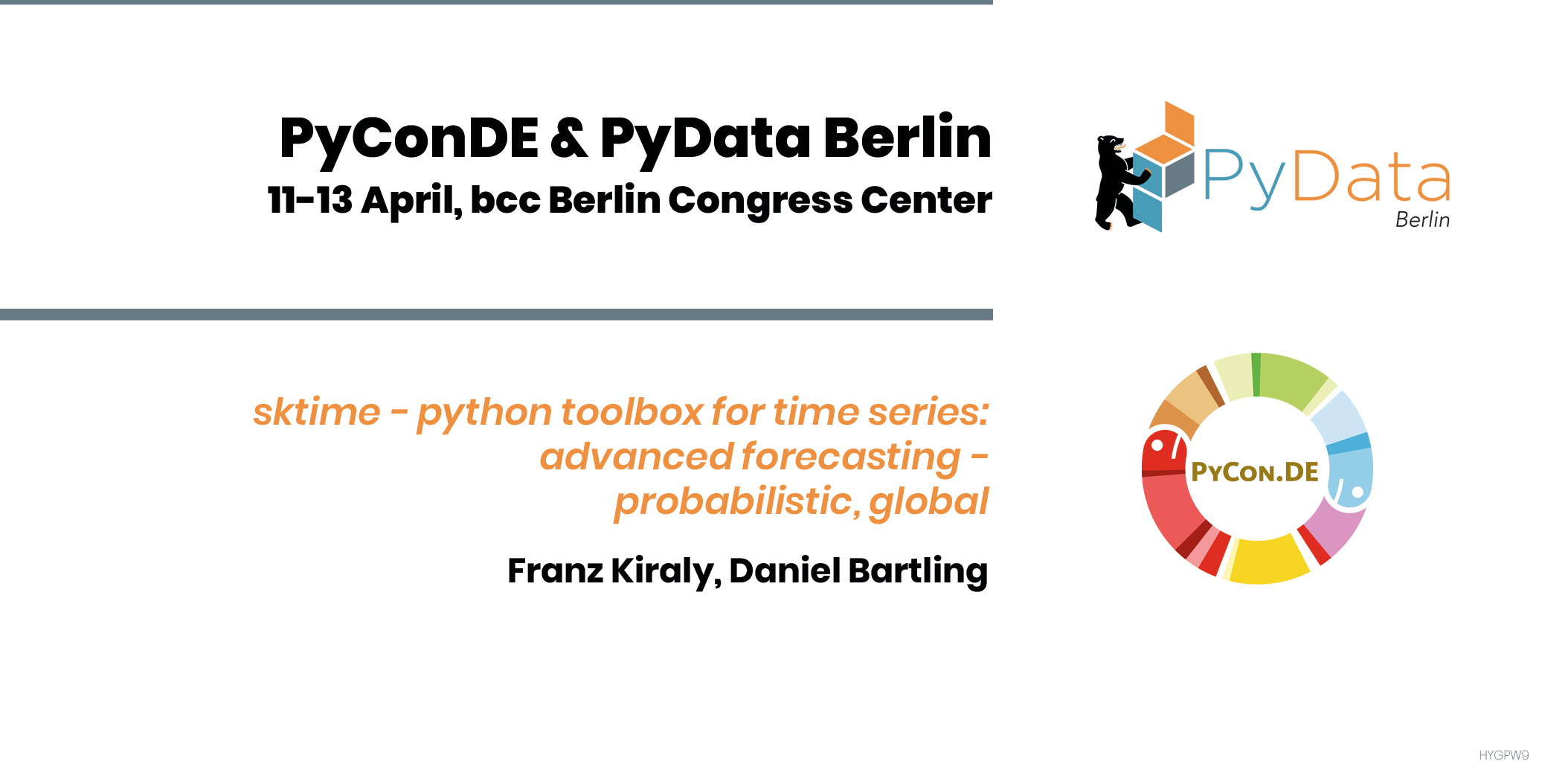sktime - python toolbox for time series: advanced forecasting - probabilistic, global and hierarchical
Franz Kiraly
There has been a surge of recent interest in probabilistic forecasting, as well as global and hierarchical forecasting. Advances in research and benchmarking studies such as M5 have proven that composable pipelines achieve state-of-art performance.
One of the newest additions to sktime are interfaces for probabilistic forecasting, and forecasting with panel or hierarchical data.
Probabilistic forecasting is the task of making forecast predictions that include statements about the uncertainty of the forecast. It includes:
- interval forecasts: producing intervals with a nominal probability of the observation to be contained in the interval
- quantile forecasts: specifying one or multiple quantiles of a predictive forecast distribution
- fully probabilistic forecasts: producing a symbolic representation of a predictive forecast distribution
- samples from probabilistic forecasts: producing a sample from the predictive forecast distribution
Probabilistic forecasts are evaluated using probabilistic forecast metrics; they can be obtained from, or partake in specific composition algorithms.
Hierarchical time series are temporal observations where individual observations may be of an instance classified by one or multiple "hierarchy" variables, such as "hospital ID" or "patient ID". A special case is a panel of time series, which is simply a collection of time series. Forecasting with such time series may be improved by algorithms that use information across the different instances, or information that links time series to the hierarchy variables. Another term for this task is "global forecasting".
Lastly, a forecast may be both hierarchical and probabilistic, i.e., in a scenario where multiple time series with hierarchy variables are present, and where uncertainty statements of the forecast are of interest.
sktime's forecasting module provides a number of new interfaces for the above, some consolidating, some bleeding-edge with opportunities to contribute to implementation or design. As research on software interfaces and mathematical conceptualization in this area is still an ongoing endeavour, challenges will also be discussed. We welcome contributions from the pydata/numfocus community.
Franz Kiraly
One of the core developers of the sktime package.
In their day job, principal science expert at Shell R&D and honorary faculty at University College London. Research interests include model assurance and software design for AI toolboxes.

